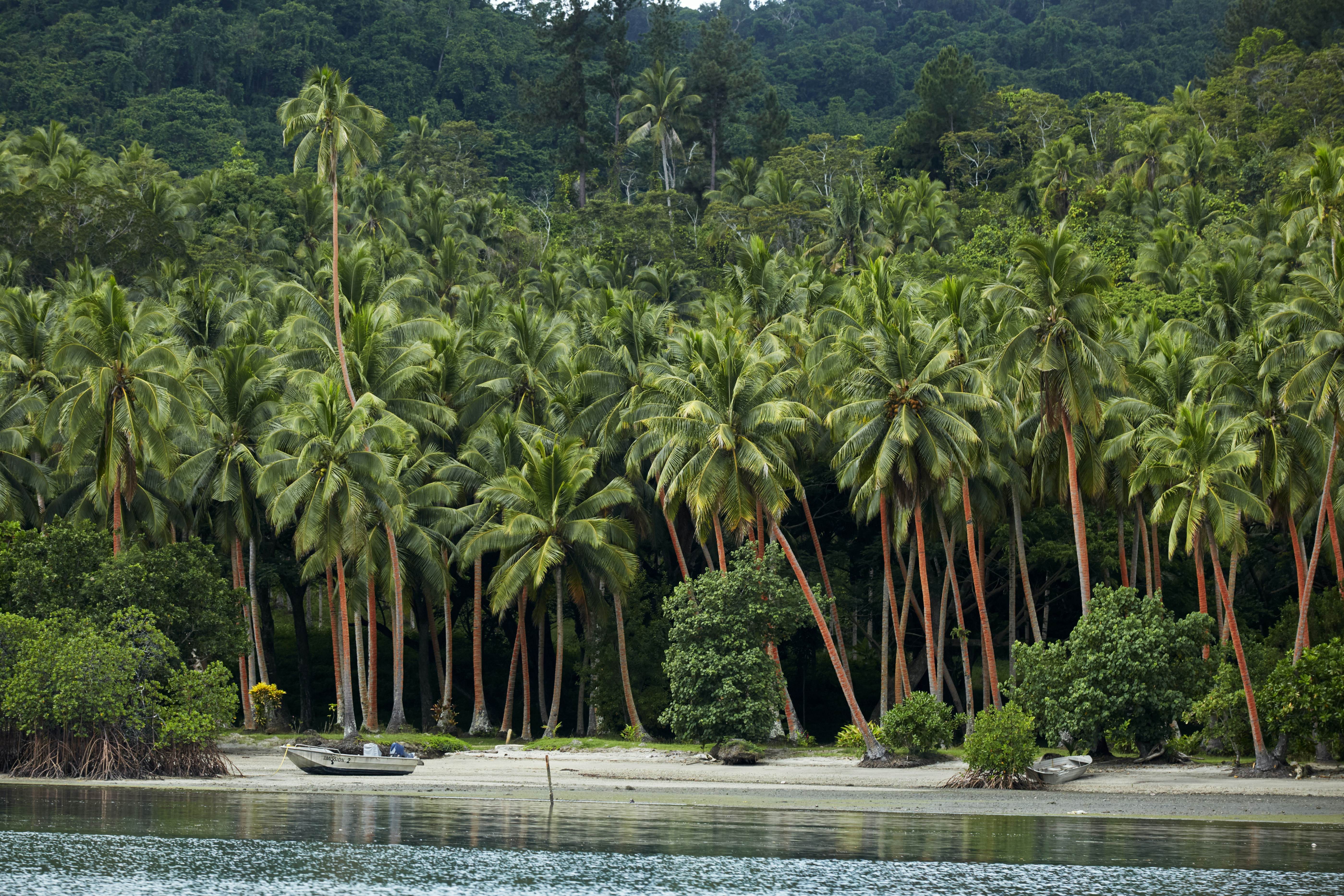Fiji, with its breathtaking beaches and vibrant culture, is a dream destination. Wondering When Is The Best Time To Travel To Fiji? SIXT.VN is here to guide you. The ideal time to visit is during the dry season, from June to September, offering sunny skies and comfortable temperatures. Planning your trip around this time ensures an unforgettable experience with various water activities and cultural events. Discover the beauty of Fiji with insider tips and tailored travel solutions!
1. What Is the Best Time of Year to Visit Fiji for Ideal Weather?
The best time of year to visit Fiji for ideal weather is during the dry season, which typically runs from June to September. This period offers the most sunshine, minimal rainfall, and comfortable temperatures ranging from 20–30°C (68–86°F). These conditions are perfect for enjoying Fiji’s stunning beaches, engaging in water sports, and exploring the islands.
During the dry season, Fiji experiences southeast trade winds that keep the humidity lower and the temperatures pleasant. This makes it an excellent time for those who prefer cooler, drier climates. According to the Fiji Meteorological Service, these months have the lowest average rainfall and the highest number of sunshine hours, ensuring a higher chance of clear skies and calm seas. This is particularly beneficial for activities like snorkeling, diving, and sailing. Moreover, the dry season coincides with the school holidays in Australia and New Zealand, leading to a bustling atmosphere in popular resorts but also numerous events and activities catering to tourists.
2. How Does the High Season (June to September) Impact a Trip to Fiji?
The high season in Fiji, from June to September, brings idyllic weather and increased tourism, impacting your trip in several ways. Expect higher prices for accommodations and flights due to increased demand. The large resorts, especially on Denarau Island, are often filled with families from Australia and New Zealand enjoying their winter school holidays.
 Denarau Island Fiji
Denarau Island Fiji
However, this period also offers unique advantages. The weather is perfect for ocean adventures like surfing at Cloudbreak, home to the World Surf League Championships. Sailing enthusiasts can enjoy Fiji Regatta Week in September, exploring the islands by boat. Divers and snorkelers will find excellent conditions in the Yasawa Islands and the Great Astrolabe Reef, where manta rays gather. While high season means more tourists, Fiji’s islands are spread out, allowing you to find serene spots away from the crowds. According to Tourism Fiji, the high season sees a 20% increase in visitor numbers, but this is well-managed across the archipelago, ensuring a pleasant experience for all.
3. What Are the Benefits of Visiting Fiji During the Shoulder Months (May and October)?
Visiting Fiji during the shoulder months of May and October offers a sweet spot of fewer crowds and pleasant weather. In May, as the dry season begins, temperatures climb towards the high 20°Cs (high 60ºFs), providing plenty of sunshine without the peak season rush. By the end of October, temperatures consistently warm up to the low 30°Cs (low 80ºFs) with relatively low humidity, making it comfortable for various activities.
 Woman relaxing in a hammock on Vacation to Kuata island in Fiji
Woman relaxing in a hammock on Vacation to Kuata island in Fiji
One of the main advantages of traveling during these months is the lower prices for accommodations and flights compared to the high season. According to booking data from SIXT.VN, hotels and resorts often offer discounts of up to 30% during the shoulder months. Additionally, you’ll find popular attractions less crowded, allowing for a more relaxed and intimate experience. October is also a festive month in Fiji, with celebrations like Fiji Day and the Uprising Music Festival adding to the cultural richness of your trip. Diwali, the Hindu festival of lights, also falls in late October or early November, offering a unique cultural experience.
4. Is It Worth Visiting Fiji During the Wet/Cyclone Season (November to April)?
Visiting Fiji during the wet or cyclone season, from November to April, can be worthwhile for budget-conscious travelers and those seeking a quieter experience. While this period is characterized by higher rainfall and the potential for tropical cyclones, it also offers lower accommodation prices and fewer tourists.
 Palm-treed beach on Natuvu Bay, Savusavu, Fiji
Palm-treed beach on Natuvu Bay, Savusavu, Fiji
Temperatures remain warm, typically around the high 20°Cs (high 60ºFs), and rainstorms are often brief, followed by blue skies. The Fiji Meteorological Service indicates that the peak cyclone season is usually between January and February. However, many resorts offer cyclone guarantees, providing refunds or alternative accommodation if severe weather disrupts your stay. Christmas and New Year’s are significant holidays in Fiji, with vibrant celebrations and events. March brings the colorful Holi festival, while Easter offers enchanting Fijian hymns in church services. Despite the risk of rain, you can still enjoy plenty of sunshine and unique cultural experiences during the wet season.
5. How Do Fiji’s Seasons Affect Water Activities Like Surfing, Diving, and Snorkeling?
Fiji’s seasons significantly impact water activities such as surfing, diving, and snorkeling, making certain times of the year more favorable for each.
Surfing
The best time for surfing in Fiji is during the dry season (June to September). Iconic surf spots like Cloudbreak at Tavarua Island offer consistent and powerful waves, attracting surfers from around the world. According to surf reports, this period sees the most reliable swells, making it ideal for experienced surfers.
Diving and Snorkeling
The dry season (May to October) is also excellent for diving and snorkeling, particularly in the Yasawa Islands and the Great Astrolabe Reef. This is when manta rays are most commonly sighted. A lack of rainfall around Vanua Levu and Taveuni provides excellent visibility for exploring coral reefs. During the wet season (November to April), diving and snorkeling are still possible, but visibility may be reduced due to increased rainfall and runoff.
Overall Water Conditions
The calmer seas and clearer waters of the dry season make it safer and more enjoyable for all water activities. However, even during the wet season, sheltered bays and lagoons can offer pleasant conditions for snorkeling and diving. Divers Alert Network (DAN) recommends checking local weather conditions and sea forecasts before engaging in any water activity, regardless of the season.
6. What Cultural Events Should I Plan My Trip Around in Fiji?
Fiji offers a rich tapestry of cultural events throughout the year, providing unique opportunities to immerse yourself in local traditions. Here are some key events to consider when planning your trip:
| Month | Event | Description |
|---|---|---|
| January-February | Chinese New Year | Celebrated by the Chinese community with traditional dances, food, and festivities. |
| March | Holi | A vibrant Hindu festival of colors, celebrated with the throwing of colorful powders and water. |
| March/April | Easter | A significant Christian holiday marked by church services, hymns, and community gatherings. |
| May | Bula Festival | A week-long celebration in Nadi featuring parades, cultural performances, and traditional Fijian games. |
| October | Fiji Day | Celebrates Fiji’s independence from British rule with beach outings, feasts (lovo), music, and dance performances. |
| October/November | Diwali | A Hindu festival of lights with fireworks, traditional Indian sweets, and home visits. |
| December | Christmas | One of Fiji’s largest religious holidays, celebrated with special markets, music performances, and community events. |
| December | New Year’s Eve | Major cities host parties and celebrations, with Fiji being one of the first countries to ring in the New Year. |
| September | Fiji Regatta Week | Sailors from throughout the South Pacific come to Fiji to explore the islands by boat. |
| October/November | Uprising Music Festival | The largest music festival in Fiji held at Uprising Beach Resort. It’s a chance to kick your shoes off and dance as local musicians play from midday until late into the night on the beach. |
Planning your trip around these events can enrich your experience and provide deeper insights into Fiji’s diverse culture.
7. How Can SIXT.VN Help Plan the Best Trip to Fiji?
SIXT.VN can significantly enhance your trip to Fiji by providing comprehensive travel solutions tailored to your needs. Here’s how SIXT.VN can assist you in planning the perfect getaway:
- Personalized Itinerary Planning: SIXT.VN offers customized travel itineraries that align with your preferences, whether you seek adventure, relaxation, or cultural immersion.
- Airport Transfer Service: Ensure a smooth start and end to your vacation with SIXT.VN’s reliable and comfortable airport transfer services, taking the stress out of your arrival and departure. Address: 260 Cau Giay, Hanoi, Vietnam. Hotline/Whatsapp: +84 986 244 358. Website: SIXT.VN.
- Hotel Booking Assistance: SIXT.VN provides a wide range of hotel options to suit any budget and location preference, from luxurious resorts to cozy boutique accommodations.
- Tour and Activity Recommendations: Discover Fiji’s hidden gems and popular attractions with SIXT.VN’s curated list of tours and activities, including snorkeling trips, cultural excursions, and adventure tours.
- Flight Booking Service: Find the best deals on flights to Fiji with SIXT.VN’s flight booking service, ensuring a seamless and cost-effective travel experience.
- Expert Travel Advice: Benefit from SIXT.VN’s expertise in Fijian travel, with up-to-date information on entry requirements, local customs, and safety tips.
With SIXT.VN, planning your dream trip to Fiji is easy and stress-free. Let us handle the details while you focus on creating unforgettable memories.
8. What Should I Pack for a Trip to Fiji, Considering the Different Seasons?
Packing for a trip to Fiji requires considering the climate and activities you plan to enjoy. Here’s a seasonal packing guide:
Dry Season (June to September)
- Lightweight clothing: Pack breathable fabrics like cotton and linen.
- Swimwear: Essential for enjoying Fiji’s beaches and water activities.
- Sunscreen: High SPF to protect against strong tropical sun.
- Hat and sunglasses: For sun protection.
- Insect repellent: To ward off mosquitoes, especially in the evenings.
- Light rain jacket: Although it’s the dry season, occasional showers can occur.
- Comfortable walking shoes: For exploring the islands.
- Dressy attire: For dinners and cultural events.
Shoulder Months (May and October)
- Similar to the dry season packing list.
- A light sweater or wrap: Evenings can be slightly cooler.
Wet Season (November to April)
- Lightweight, quick-drying clothing: Essential for dealing with humidity and rain.
- Waterproof bag: To protect electronics and valuables.
- Umbrella: For heavy downpours.
- Water shoes: For walking on wet surfaces and protecting feet in the water.
- Extra insect repellent: Mosquitoes are more prevalent during the wet season.
- Medications: Pack any necessary medications, as access to specific brands may be limited.
Regardless of the season, it’s always a good idea to pack a basic first-aid kit, any personal toiletries, and a reusable water bottle to stay hydrated.
9. What Are the Key Considerations for Booking Accommodation in Fiji?
Booking accommodation in Fiji requires careful consideration to ensure a comfortable and enjoyable stay. Here are some key factors to keep in mind:
Location
Consider the location based on your interests. Denarau Island is known for its large resorts and family-friendly amenities. The Yasawa and Mamanuca Islands offer more secluded and picturesque settings, ideal for romantic getaways and relaxation. Vanua Levu and Taveuni are great for diving and exploring lush landscapes.
Budget
Accommodation options in Fiji range from budget-friendly hostels to luxury resorts. Determine your budget and look for accommodations that offer the best value within your price range. Booking in advance can often secure better rates.
Amenities
Decide which amenities are essential for your stay. Many resorts offer all-inclusive packages that cover meals, drinks, and activities. Consider whether you need features like a swimming pool, spa, fitness center, or kids’ club.
Reviews and Ratings
Check reviews and ratings from previous guests on sites like TripAdvisor and Booking.com to get an idea of the quality and service of the accommodation. Pay attention to comments about cleanliness, staff friendliness, and overall experience.
Accessibility
Consider how accessible the accommodation is, especially if you have mobility issues. Some islands may only be accessible by boat, which can be a factor if you prefer easy access to the mainland.
Sustainability
Choose eco-friendly accommodations that prioritize sustainable practices. Many resorts in Fiji are committed to preserving the environment and supporting local communities.
By considering these factors, you can find the perfect accommodation to suit your needs and ensure a memorable trip to Fiji.
10. What Are Some Tips for Staying Safe and Healthy During a Trip to Fiji?
Staying safe and healthy during your trip to Fiji involves taking some simple precautions:
Health Precautions
- Vaccinations: Consult your doctor about recommended vaccinations and health precautions for Fiji.
- Sun Protection: Wear sunscreen with a high SPF, a hat, and sunglasses to protect against the strong tropical sun.
- Hydration: Drink plenty of water to stay hydrated, especially in the hot and humid climate.
- Food and Water Safety: Drink bottled or purified water to avoid stomach upsets. Eat at reputable restaurants and avoid street food that may not be properly prepared.
- Insect Repellent: Use insect repellent to protect against mosquito bites, which can transmit diseases like dengue fever and Zika virus.
Safety Tips
- Swimming Safety: Swim in designated areas and be aware of currents and tides. Avoid swimming alone, especially in remote areas.
- Water Activities: Follow safety guidelines for water activities like snorkeling, diving, and surfing. Use appropriate gear and listen to the instructions of experienced guides.
- Weather Awareness: Stay informed about weather conditions, especially during the cyclone season (November to April). Follow local advice and be prepared to evacuate if necessary.
- Personal Safety: Keep valuables secure and be aware of your surroundings, especially in crowded areas. Avoid walking alone at night in poorly lit areas.
- Respect Local Customs: Dress modestly when visiting villages and religious sites. Ask for permission before taking photos of people.
By following these tips, you can minimize risks and enjoy a safe and healthy trip to Fiji.
Fiji is calling – are you ready to answer? With SIXT.VN, your dream vacation is just a click away. From personalized itineraries to seamless airport transfers and handpicked accommodations, we take care of every detail so you can focus on making memories. Don’t wait any longer – explore our travel packages and book your Fijian adventure today! Visit SIXT.VN, Address: 260 Cau Giay, Hanoi, Vietnam. Hotline/Whatsapp: +84 986 244 358. Website: SIXT.VN and let the journey begin!



